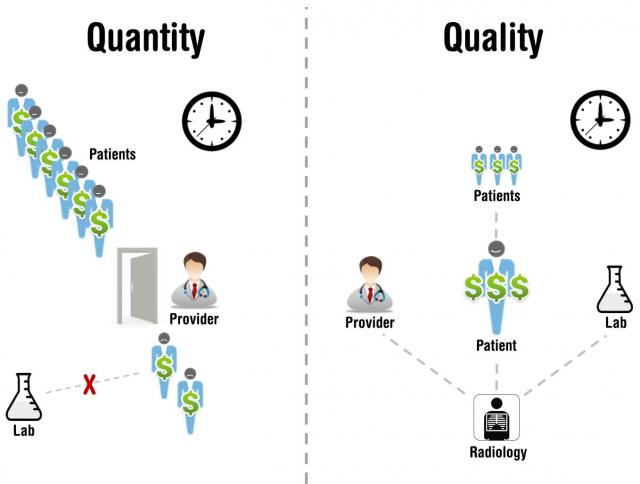Accountable care organizations (ACOs) are defined by most as groups of doctors, hospitals, and other healthcare providers who come together to provide coordinated, high-quality care. They come together and make the providers involved accountable for both costs and patient outcomes. The desired result is a new reimbursement model based on the achievement of measurable quality benchmarks and cost reductions for a specific group of patients. So how does the lab fit in this model? Is a lab a commodity providing electricity or water? No. It is a key integral component of patient care, outcomes, and cost reduction.
 But this can only be the case if providers and those that support them have a way to manage the volume of patients while maintaining a closeness and relationship amidst all the things than can go wrong. Those providers are the ones that understand the importance of utilizing a high quality lab that not only provides timely testing and results, but also is a partner in the care of patients they serve. For labs, this can only be accomplished if they solve for placing providers at the center of focus....and adopting and nurturing a lab CRM culture could make the difference.
But this can only be the case if providers and those that support them have a way to manage the volume of patients while maintaining a closeness and relationship amidst all the things than can go wrong. Those providers are the ones that understand the importance of utilizing a high quality lab that not only provides timely testing and results, but also is a partner in the care of patients they serve. For labs, this can only be accomplished if they solve for placing providers at the center of focus....and adopting and nurturing a lab CRM culture could make the difference.
Without a CRM, labs can't help but be "silo'd", forcing departments inward and away from coordination with other departments and out of sync with the very value ACO's are trying to deliver on. A lab is operationally intense. Unless a solution has instant access to clinical activity, coupled with business activity, most labs are flying at with a low altitude without navigation. With lab-specific CRM and healthcare business intelligence, labs are able to establish and maintain a closeness that can only occur when the front line sales and support team are connected to client services, courier manager, and specimen processing. Not to mention IT connectivity for results.
These "results" could be 1) a regular rhythm of client visit notes 2) effectively squashing problems when they arise and 3) gaining visibility into trends through business intelligence, which leads to the root cause correction. So, labs without lab CRM are ill equipped to partner and become more than a commodity in the new world of ACO's. Those that do adopt a lab analytics solution are uniquely positioned to be at the heart of patient care and outcome improvement.
To learn more about this new reimbursement model and how your lab fits in with our healthcare relationship management solution, contact us today.

